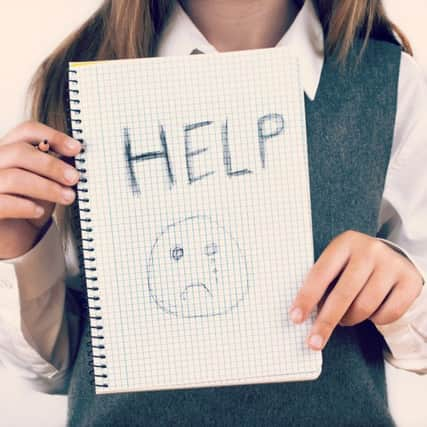Isabella Goldie: Mental health is challenge of our time


We are slowly waking up to the realisation that mental health problems are the public health challenge of our time. Every week, one in six adults will experience a mental health problem, such as anxiety or depression, and one in five will have considered taking their own life.
Alarmingly, in the Mental Health Foundation’s Surviving Or Thriving report a life course gradient was found to be appearing with more than 70 per cent of young people feeling that they had experienced a mental health problem in their short lives compared with 60 per cent of over 55s. Added to this, one in four girls under the age of 14 feel that they have experienced symptoms of depression and more than three children in every class will self-harm. Our children are finding life more difficult to navigate than previous generations and worryingly, living with high levels of distress. This is something we can no longer choose to ignore.
Advertisement
Hide AdAdvertisement
Hide AdStudies have brought to the surface a number of factors that may be clustering together to erode children’s mental health. The time spent online compared with face-to-face contact is often blamed. The spectre of the internet provides an easy scapegoat, but overall, relationships are still at the heart of what makes and breaks our mental health. The ability to be able to communicate and form relationships is vital if children are to thrive at school and this “school readiness” is one of the strongest predictors of whether a child will go on to develop mental health problems.
We have known for some time that the majority of mental health problems are rooted in childhood adversity. Last year, research by the Mental Health Foundation with the Joseph Rowntree Foundation exposed the links between mental health and poverty. Now new research shows just how important that relationship is for children, with those from the most deprived backgrounds at higher risk of displaying social, emotional or behavioural difficulties by the time they reach primary school. Alarmingly, the gap between children from most and least affluent backgrounds was shown to widen by primary three.
More affluent children experienced a settling down effect with only 3.6 per cent displaying these early signs of mental health problems whilst there was an increase to 14.7 per cent for those from most deprived backgrounds.
Scotland has taken steps to create more nurturing school environments but the challenge will be to ensure these efforts are applied proportionately, leaving no-one behind.
Action also needs to be taken to support parents and teachers who are finding themselves increasingly stressed, which of course leaks into young brains that are wired to be emotionally receptive. Maternal mental health is a key factor in school readiness and we need to get better at identifying this risk at the earliest point.
We have a ready-made opportunity to improve family mental health through universal nursery and school provision. To have an impact the education system needs to equip staff in the application of psychologically and trauma informed approaches that can help mitigate the impact of adversity.
If we fail in this then we need to batten down the hatches for the imminent mental health storm.
Isabella Goldie is the Director of Development and Delivery at the Mental Health Foundation.